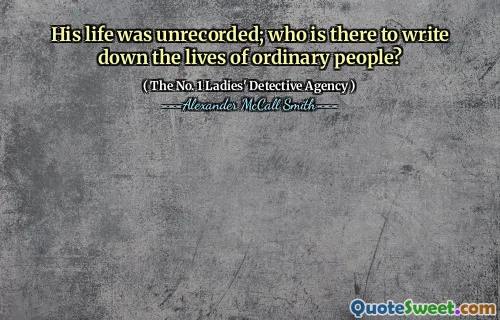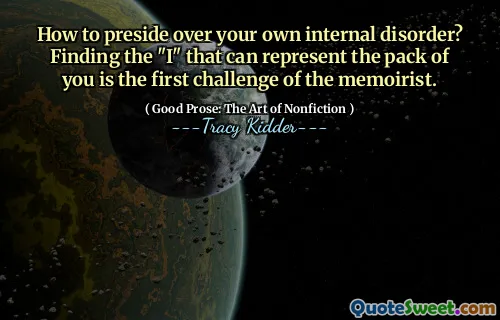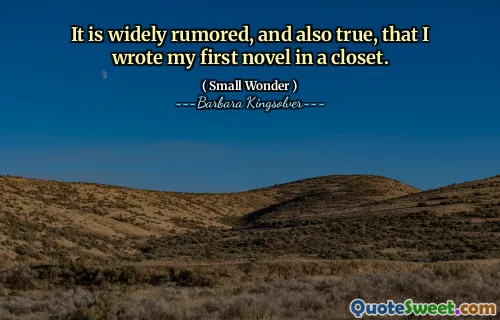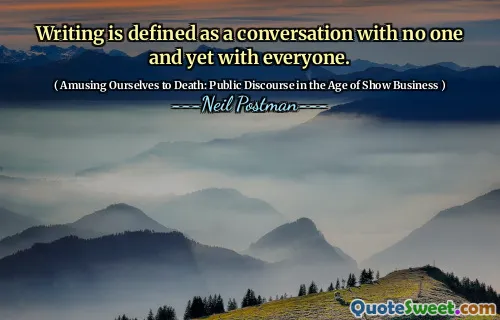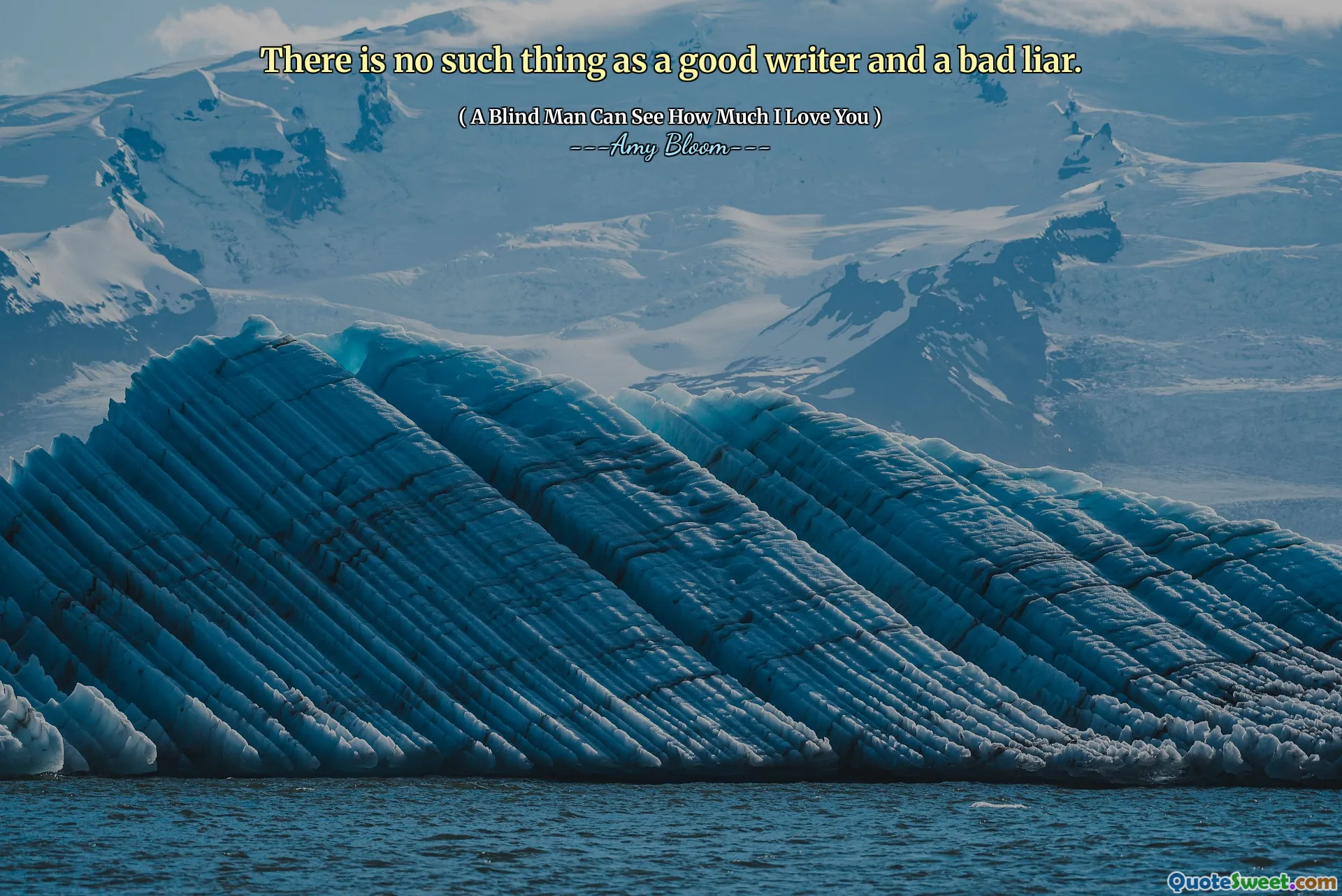
There is no such thing as a good writer and a bad liar.
This quote delves into the nuanced relationship between storytelling and honesty. At its core, it suggests that the skills required to craft compelling narratives often extend to the art of deceit. Writers, in their pursuit of captivating their audience, may sometimes employ embellishments, omissions, or outright fabrications—techniques akin to lying. The boundary between storytelling and deception becomes blurred, prompting reflection on the nature of truth in art and communication.
From a broader perspective, this insight challenges the notion that honesty is the only or the best foundation for effective expression. A good writer understands the power of words to persuade, evoke emotion, or create alternative realities, whether or not these realities are rooted in factual accuracy. The line between fiction and reality becomes more porous, especially in literature, journalism, or political speech, where words can influence perceptions and behaviors.
Furthermore, the quote raises ethical questions: Is the craft of lying inherently bad if it serves a purpose such as entertainment, education, or social critique? Sometimes, deception can be a weapon for truth—highlighting societal flaws, exposing injustice, or exploring human experiences that would otherwise remain hidden. In such contexts, the ability to convincingly lie can be a mark of mastery, yet it also demands responsibility to avoid harm.
On a personal level, this quote reminds me that all forms of communication possess a dual capacity: they can convey truth or obfuscate it. Being conscious of this duality enables one to navigate conversations, storytelling, and even marketing with a more critical eye. It underscores the importance of integrity, even as we recognize the artful use of manipulation that sometimes underpins persuasive writing.
Ultimately, the quote challenges us to consider the complex craft of language—where creativity, ethics, and the desire to influence intersect. It’s a reminder that mastery over words isn’t solely about truthfulness but about understanding how words can shape perceptions, whether for good or ill.


